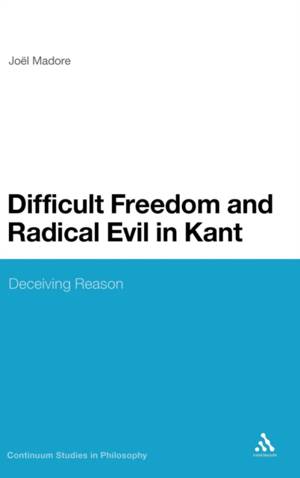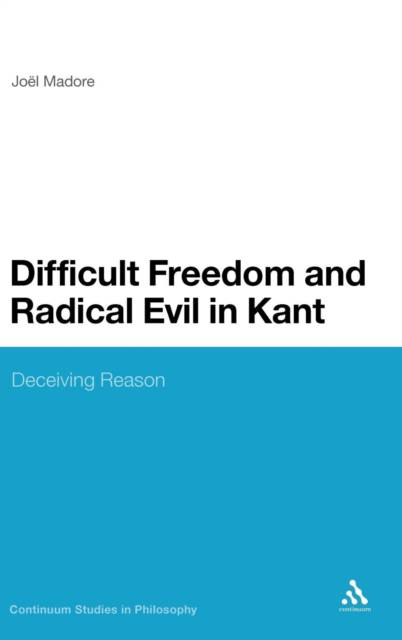
- Afhalen na 1 uur in een winkel met voorraad
- Gratis thuislevering in België vanaf € 30
- Ruim aanbod met 7 miljoen producten
- Afhalen na 1 uur in een winkel met voorraad
- Gratis thuislevering in België vanaf € 30
- Ruim aanbod met 7 miljoen producten
Zoeken
€ 339,45
+ 678 punten
Uitvoering
Omschrijving
"To speak of evil is to speak of a gap between what is and what should be. If classical approaches to this problem often relied on a religious or metaphysical framework to structure their response, Kant's answer is typically modern in that it places within the subject the means of its own moral regeneration. And yet from his first essays on ethics to later, more rigorous writings on the issue, Kant also admits an undeniable fallibility and inherent weakness to humanity.
This book explores this neglected existential side of Kant's work. It presents radical evil as vacillating between tragic and freedom, at the threshold of humanity. Through it's careful exegesis of the Kantian corpus, in gauging contemporary responses from both philosophical traditions, and by drawing from concrete examples of evil, the book offers a novel and accessible account of what is widely considered to be an intricate yet urgent problem of philosophy."
This book explores this neglected existential side of Kant's work. It presents radical evil as vacillating between tragic and freedom, at the threshold of humanity. Through it's careful exegesis of the Kantian corpus, in gauging contemporary responses from both philosophical traditions, and by drawing from concrete examples of evil, the book offers a novel and accessible account of what is widely considered to be an intricate yet urgent problem of philosophy."
Specificaties
Betrokkenen
- Auteur(s):
- Uitgeverij:
Inhoud
- Aantal bladzijden:
- 208
- Taal:
- Engels
- Reeks:
- Reeksnummer:
- nr. 26
Eigenschappen
- Productcode (EAN):
- 9781441193193
- Verschijningsdatum:
- 5/01/2012
- Uitvoering:
- Hardcover
- Formaat:
- Genaaid
- Afmetingen:
- 156 mm x 234 mm
- Gewicht:
- 467 g

Alleen bij Standaard Boekhandel
+ 678 punten op je klantenkaart van Standaard Boekhandel
Beoordelingen
We publiceren alleen reviews die voldoen aan de voorwaarden voor reviews. Bekijk onze voorwaarden voor reviews.








